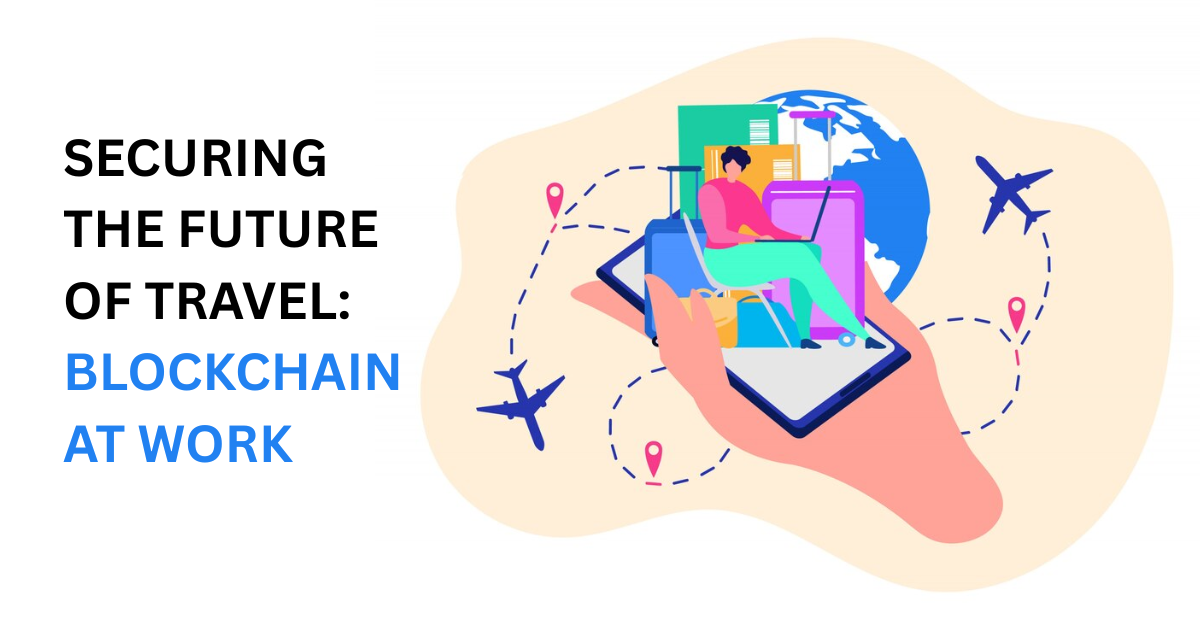The Role of Blockchain in Travel: Enhancing Transparency and Trust

Strong 8k brings an ultra-HD IPTV experience to your living room and your pocket.
The global travel industry continues to face rising expectations for safety, transparency, and data protection. In 2023, the World Travel & Tourism Council reported that global tourism contributed $9.5 trillion to the global GDP. At the same time, the sector dealt with increasing fraud and data privacy issues. According to Juniper Research, online travel fraud will exceed $25 billion annually by 2025. As digitalization accelerates, the industry needs technologies that offer both integrity and efficiency. Travel Technology Solutions that integrate blockchain offer promising advancements in these areas.
✍️ Voting fraud and transparency issues may soon be solved. Explore our coverage on blockchain voting systems and how they ensure trust and security in elections.
Blockchain, often linked to cryptocurrency, has much broader applications. In travel, it can verify identities, secure transactions, and ensure data accuracy.
Understanding Blockchain Technology
Blockchain is a distributed ledger technology (DLT). It stores data in blocks, each linked to the previous one. These blocks form an immutable chain. Once data is written to a blockchain, no one can alter it without consensus from the network.
Key features of blockchain include:
- Decentralization: No single entity controls the database.
- Immutability: Records, once added, cannot be changed.
- Transparency: All network participants can view the ledger.
- Security: Cryptography protects data and verifies user identities.
- These characteristics make blockchain suitable for travel industry operations that demand accuracy and trust.
Applications of Blockchain in the Travel Industry
1. Identity Verification
Airports and immigration desks handle millions of passenger verifications daily. Traditional identity checks rely on physical documents and manual systems. These methods can be slow and error-prone.
Blockchain enables secure digital identities. Travelers can store biometric and identification data on a blockchain. Airlines and border control authorities can access this data using permissioned access.
- Example: SITA, a global air transport IT company, has tested blockchain-based digital identity systems to reduce airport congestion and improve security.
2. Booking and Payment Systems
Travel booking involves multiple parties—airlines, hotels, agencies, and payment processors. This creates a fragmented process that can lead to errors and fraud.
Blockchain can record every transaction on a shared ledger. Smart contracts can automatically trigger payments when certain conditions are met, ensuring accuracy and reducing delays.
3. Baggage Tracking
Lost luggage remains a common travel complaint. Current tracking systems lack integration across carriers and airports.
Blockchain allows all stakeholders to access a single source of truth. Each time baggage changes hands, an entry is recorded. This audit trail improves accountability.
4. Loyalty Programs
Airlines and hotels often struggle to manage loyalty points across systems. Customers face delays in earning or redeeming rewards.
Blockchain can tokenize loyalty points. Travelers can use points across multiple vendors without delays or manual reconciliations.
5. Travel Insurance
Blockchain can automate insurance claims. Smart contracts trigger payouts for events like flight delays, based on data from trusted sources.
Example: Etherisc, an insurance platform, uses blockchain to automate travel delay insurance.
Integration Challenges and Limitations
Despite its potential, blockchain adoption faces challenges:
1. Scalability
Public blockchains like Ethereum can process about 15 transactions per second. Travel platforms need higher throughput.
2. Regulatory Uncertainty
Data protection laws vary across countries. Blockchain’s immutable nature can conflict with regulations like GDPR.
3. Integration Complexity
Blockchain must integrate with legacy systems. This requires time, expertise, and cost.
4. Energy Consumption
Proof-of-work blockchains consume significant energy. Alternatives like proof-of-stake are more efficient but less tested.
Collaborating with a Travel Technology Solutions provider experienced in blockchain can address integration and compliance challenges.
The Role of Travel Technology Solutions Providers in Blockchain Adoption
A skilled Travel Technology Solutions company offers valuable expertise in designing and deploying blockchain solutions. Such firms:
- Identify relevant use cases
- Select appropriate blockchain platforms (public or private)
- Ensure compliance with data regulations
- Create APIs to link blockchain with chatbots and CRMs
These capabilities allow businesses to develop travel solutions that are both interactive and secure.
Future Outlook
The use of blockchain in travel is expanding. Gartner predicts that 20% of global enterprises will use blockchain in operations by 2025. In travel, this means more secure bookings, instant refunds, and better customer experiences.
Expect to see growth in:
- Decentralized booking platforms
- Blockchain-based health certificates
- Tokenized travel credits and loyalty points
Governments and international bodies may also standardize blockchain protocols for global interoperability.
Conclusion
Blockchain can reshape the travel industry by addressing long-standing issues in transparency, fraud, and trust. Through applications in identity verification, payments, baggage tracking, and loyalty programs, the technology adds significant value.
However, adoption requires careful planning. Businesses must consider scalability, regulation, and integration challenges. Partnering with a Travel Technology Solutions expert can ease this transition by providing the technical and operational support needed for success.
As digital transformation continues, blockchain stands as a critical pillar in building a more secure and reliable travel ecosystem.
Frequently Asked Questions (FAQs)
1. What is blockchain and how does it relate to the travel industry?
Blockchain is a decentralized, tamper-proof digital ledger. In travel, it helps improve data accuracy, security, and transparency across various services like booking, identity verification, and baggage tracking.
2. How can blockchain reduce fraud in travel bookings?
Blockchain records every transaction in an immutable ledger. This eliminates double bookings, reduces reliance on intermediaries, and provides a verifiable record that minimizes the risk of fraud.
3. Can blockchain improve the baggage handling process?
Yes. Blockchain enables a unified tracking system across airlines and airports. Each transfer of baggage is recorded on a shared ledger, reducing the chance of loss or mishandling.
4. What are the main challenges in implementing blockchain in travel?
Key challenges include scalability, integration with legacy systems, regulatory compliance, and energy consumption. These must be carefully addressed before full adoption.
5. How can Travel Technology Solutions providers support blockchain adoption?
They offer expertise in platform selection, compliance, integration, and deployment. These providers help travel businesses implement blockchain in a secure and efficient manner.
Note: IndiBlogHub features both user-submitted and editorial content. We do not verify third-party contributions. Read our Disclaimer and Privacy Policyfor details.







